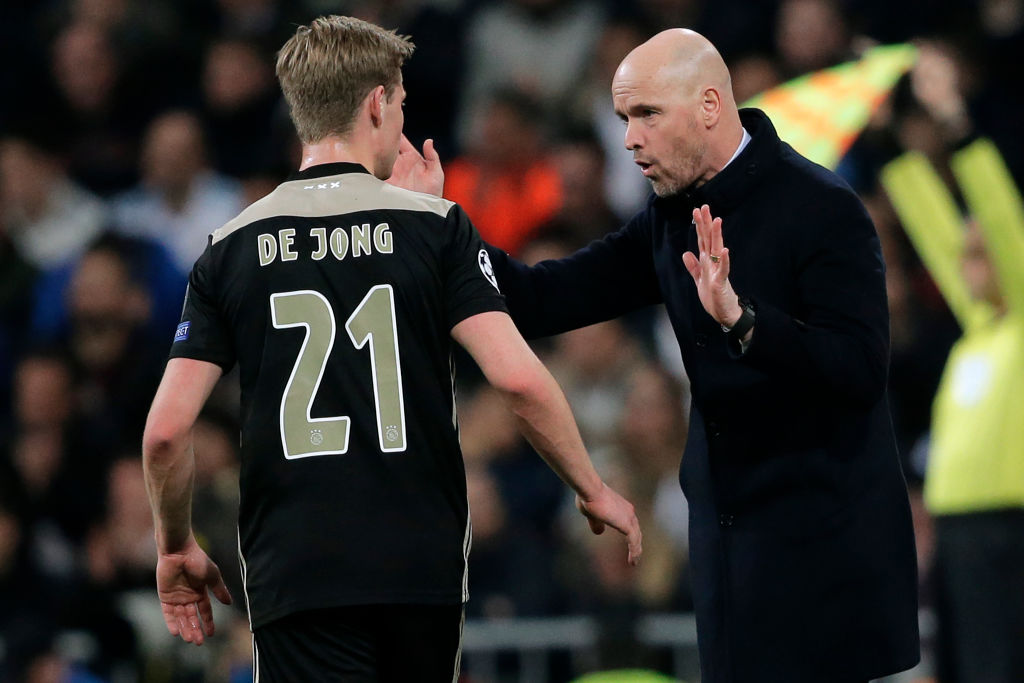
Frenkie de Jong favours a move to over and would even be willing to take a huge financial hit to play for ’s side, according to reports.
The Dutch midfielder appears increasingly likely to leave Camp Nou this summer as Barca look to raise transfer funds, with incoming United boss Erik ten Hag keen for a reunion with his former charge at Old Trafford.
De Jong has struggled somewhat to live up to his £67million price tag since moving to Spain and Barcelona would be begrudgingly willing to accept a fee in the region of what they paid three years ago.

City had also tried to sign the Netherlands international back in 2019 but were unable to match Barca’s £400,000-a-week salary offer.
But, according to , the Catalan club’s precarious financial situation means De Jong has since taken a significant salary reduction and his wages are now more in line with what City are prepared to pay.
Additionally, the midfielder – along with the rest of Barcelona’s squad – agreed to defer 40 per cent of his wages for a year and is due to receive around £6million in unpaid wages – a fee he would be prepared to waive if it meant joining City.
That sum could then be deducted from the transfer fee Barca are demanding, lowering the overall package and making De Jong significantly more appealing to City.
De Jong would be keen to make a move to the Etihad happen, though he is not expected to be as accommodating for United who will need to pull out all the stops to convince the midfielder to move to Old Trafford – particularly with no Champions League football on offer.

Barca boss Xavi has spoken glowingly about De Jong recently and would ideally like to keep him at Camp Nou, though he did suggest the matter could be taken out of his hands by the club’s financial issues.
Speaking at the weekend, he said: ‘I have said many times that Frenkie de Jong is very important. He has almost always been a starter under me and for me he is fundamental.
‘Then there is also the financial situation of the club and it will have to be decided. I’m not talking about Frenkie, but in general.
‘In a few days we have to know what economic situation we are in to start planning. See who we can count on and see on who we cannot count, the economic level marks it for us.’
, .
, and .
























